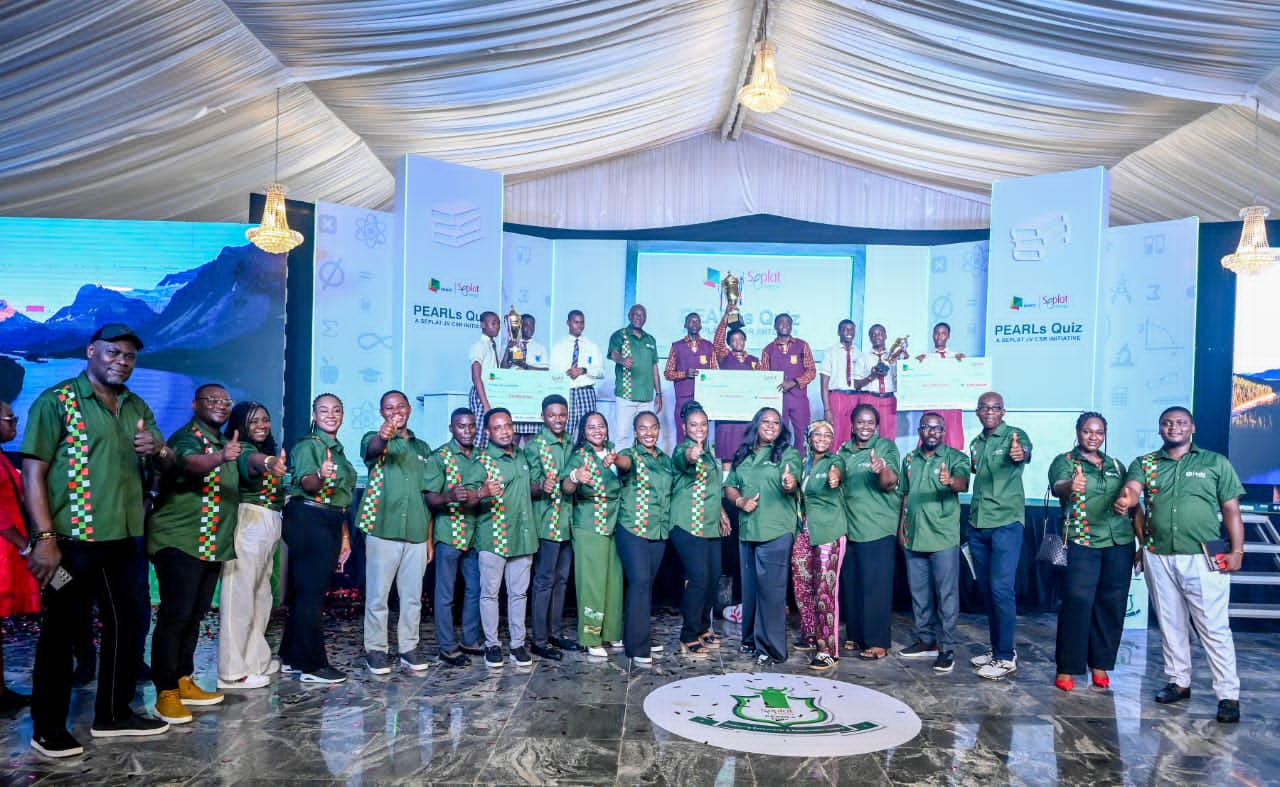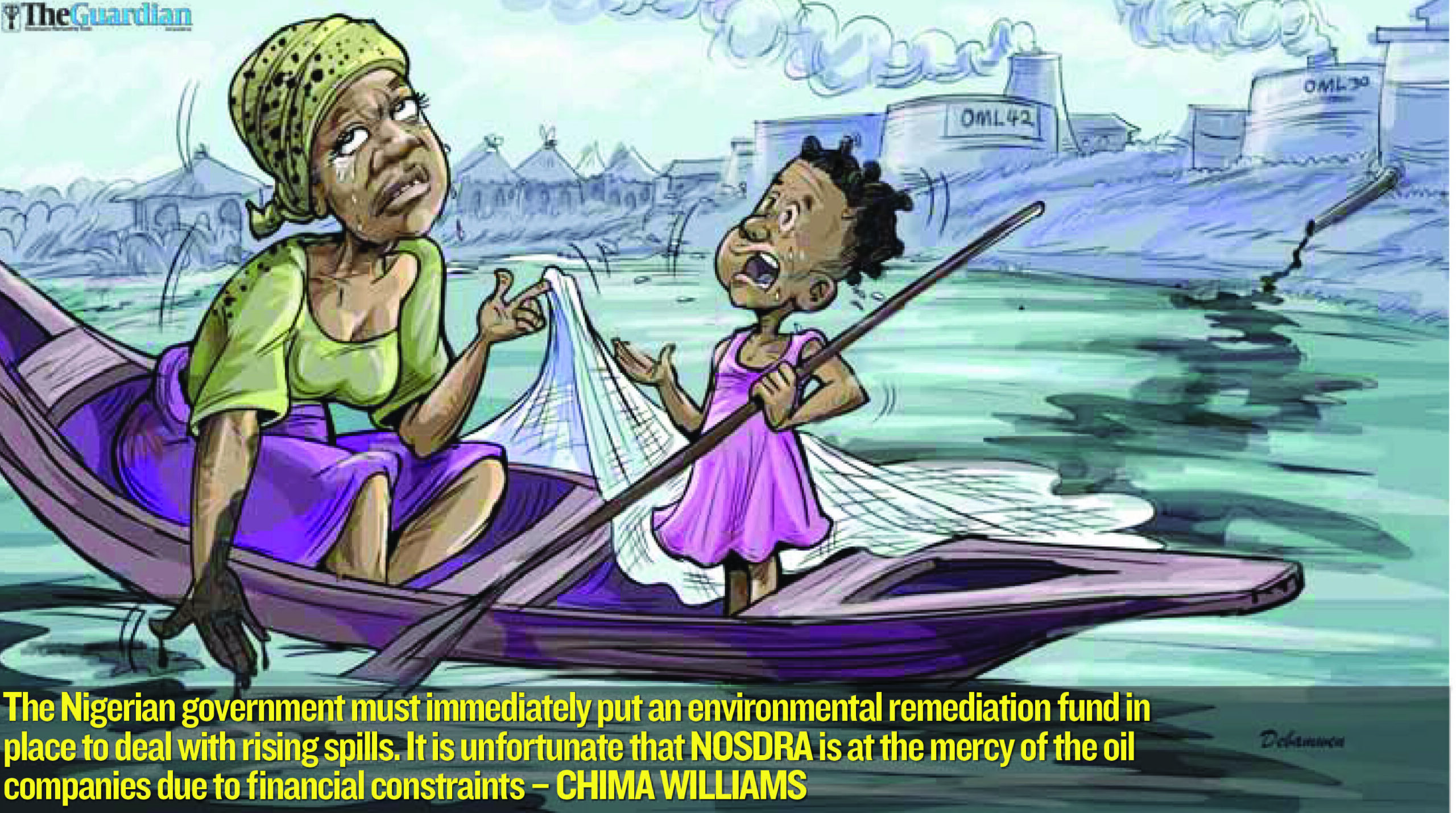 As oil companies divest in Nigeria, aging oil infrastructure laid over years ago in the Niger Delta and the liabilities of oil pollution are compounding the existing challenges in the oil producing region. This is coming amid a rising climate crisis for coastal communities. KINGSLEY JEREMIAH investigates the complexity of the burden and the crisis ahead.
As oil companies divest in Nigeria, aging oil infrastructure laid over years ago in the Niger Delta and the liabilities of oil pollution are compounding the existing challenges in the oil producing region. This is coming amid a rising climate crisis for coastal communities. KINGSLEY JEREMIAH investigates the complexity of the burden and the crisis ahead.
A consistent story of deprivation
At 12:43pm, last Thursday, Abiri Amusa, 45, had spent about three hours fishing without a single catch. She was fishing on the Diebiri Batan side of Warri River in Delta State alongside her out-of-school six-year-old daughter, who had been forced into child labour owing to the worsening state of her community.
This is coming 54 years after Oil Mining License (OML) 42 and 30 started oil production in her village.
The extensive pipeline networks, wellheads, and other critical oil infrastructure such as that of OML 42 and the nearby OML 30 laid over 60 years ago in her community and other similar ones across the Niger Delta region are now weak and suffered a series of attacks due to years of poor leadership.
This infrastructure, if they do not spill crude oil owing to vandalism, they are polluting waters as a result of equipment failure. Whatever the cause, masses like Amusa suffer the aftermath as their source of livelihood is directly affected.
Amusa started fishing at the age of five, following in her parents’ footsteps, and continued the occupation with her husband. Despite her early start, Amusa betrays her age due to the oil spill, which has destroyed her source of livelihood.
Amusa has already lost her first son in a boat accident as he journeyed Diebiri Batan in search of secondary education in Warri.
For over 50 years, oil production did not translate to a block of secondary school class rooms in her community as such her son was frequenting the one hour boat trip to Warri to attend classes before getting killed in a boat mishap.
Standing in her boat about 50 meters away from one of the crude oil wellheads of OML 42, which is located onshore in West Delta and covers an area of 814 km², Amusa reflects on what fishing was like for her about 30 years ago.
Sadly, persistent crude oil spills, which have consistently affected the biodiversity within her community, is worsening her life and further diminishing hope for her children.
“No fish again! Nothing to eat,” Amusa, who said she used to make N5,000 on a good day from fishing about 10 years ago, lamented.
Rolling up her net as she revealed that some species of fishes are already in extinction in the water, Amusa lamented how the young ones are leaving the village to seek greener pastures in other parts of the country.
 She said: “Now it is hard to even get garri to feed ourselves. We have to go to Warri to sell our fish and then buy garri.
She said: “Now it is hard to even get garri to feed ourselves. We have to go to Warri to sell our fish and then buy garri.
“There is no hospital here, so, we have to go to Warri for medical care. Some of our pregnant women in labour die on water before getting to Warri.
The operation of OML 42 and OML 30, which began between 1965 and 1969 next to her compound, has produced enough oil that should have improved her life and her community, but did not. She does not even have the requisite education to improve her lot and that of her children.
OML 42 was operated by Shell for 46 years before being divested to Nigerian National Petroleum Company Limited (NNPC) and Niconde.
From OML 42, Amusa sits on an oil reserve of 600 million barrels which, if sold today, stands at an approximate $49 billion. OML30, which is about 35km East of Warri is regarded as Nigeria’s second largest onshore oil and gas asset with reserves estimated at about 1 billion barrels of oil.
Going by the current reality in the global oil market, these reserves translate to about $80 billion. The daily production of the asset currently stands at about 75,000 barrels per day, which translates to $6 million.
Heritage Oil, which operates the facility, recently provided a token in exchange for the resources extracted from their land: about 50 solar lights and Geepee water tanks, which now lie abandoned in front of the community primary school.
But in the last 10 years, Heritage had 228 cases of spill and spilled 18,518 barrels of crude into land and water going data from oil spill monitor.
Apart from the oil companies, Amusa’s community should have also benefited from the 13 per cent derivation that comes into the account of her state as benefit transfer mechanism or resources channeled through the Niger Delta Development Commission (NDDC) but the state of her community is a reflection the resources are not reaching the beneficiaries.
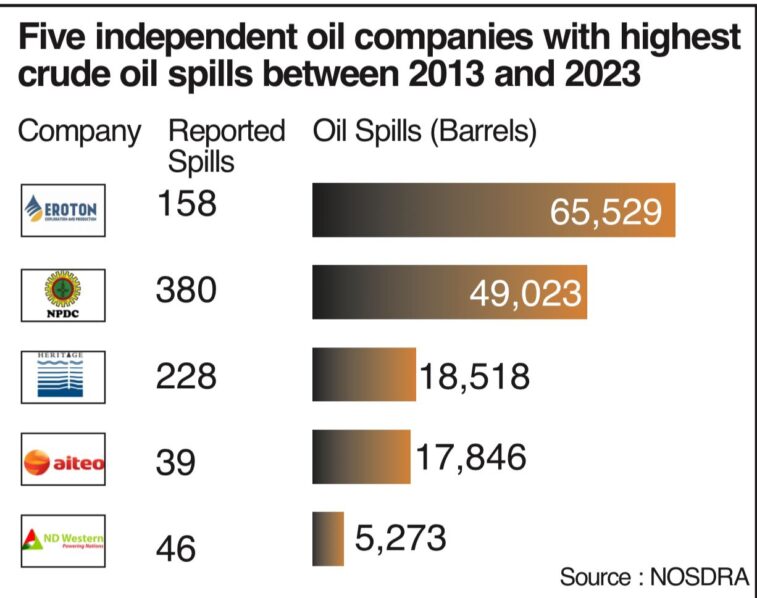
Gorge Profit, 25 was toiling on the Warri River, near well four of the OML 42 before The Guardian stopped him for a chat. He is the first child and since his father, according to him, succumbed to death from excessive consumption of contaminated fish, Profit had to fend for his mother and the rest of his siblings.
But like Amusa, life is becoming difficult in the face of the economic crisis in Nigeria.
Although he earnestly wanted to be in school but had never crossed the wall of his village into the nearest city, Warri, which is less than an hour by speed boat.
Profit has normalised crude oil spills. Instead of going home empty-handed, he usually collects the fish killed by crude oil spills, washes them, and dries them for personal consumption or sale in the open market.
“Any day there is a spill, it is normal to find fishes floating on water. It happened last month. It was from the pipeline,” Profit said while pointing to the Heritage pipeline. “Once the sun comes out, they float. Everything has become difficult. I can’t even buy the fishing net anymore because a small portion now costs about N15,000. I want to go to school, but there is no one to support me.”
Akpos Okala, 34, and his family, live alone by the bank of the Warri River a few kilometers away from Diebiri Batan and about 30 minutes to Warri Port.
 Faced with similar challenges as Profit, Okala instead of watching his three children and wife die of hunger, resorted to illegal bunkering. He did it for about five years before he became unlucky. His boat was destroyed three years ago by security forces that were monitoring oil facilities against vandals. He only attended the primary school in his community and then went on to get married.
Faced with similar challenges as Profit, Okala instead of watching his three children and wife die of hunger, resorted to illegal bunkering. He did it for about five years before he became unlucky. His boat was destroyed three years ago by security forces that were monitoring oil facilities against vandals. He only attended the primary school in his community and then went on to get married.
The Youth President of Diebiri Batan, Izonfade Zichoribai, sees trouble ahead for his community that is already heading toward extinction. The many years of neglect, according to him, has created a mess that will continue to hurt not only the region, but the entire country.
Zichoribai has been involved in a number of site visits during the spill. Most recent investigations he has witnessed were caused by equipment failures.
“Most of the leakage we are experiencing is due to equipment failure. They need to change the pipes because they are very old. I have represented the community in joint inspection visits at spill sites. Whenever they bring out the pipe, we find out it is equipment failure,” he said.
Shell’s pipeline failure… that left Eleme in pollution
On June 11 last year, Shell Development Petroleum Company (SPDC)’s Nkpoku-Bomu Oil Pipeline running from Port Harcourt to Bomu in Rivers broke open and polluted Ogale, Aleto, Agbonchia, Onne, Okpaku and Alesa in the Eleme area of Port-Harcourt.
This incident, which spilled 1,433.28 barrels of crude oil, came as an extension of the existing pollution of Ogoniland. For decades, Shell and its subsidiaries like SPDC have been in the spotlight for crude oil pollution in Ogoniland. SPDC’s ownership structure has Nigerian National Petroleum Company Limited (NNPC) with 55 per cent share, Shell 30 per cent, Total 10 per cent and Agip 5 per cent.
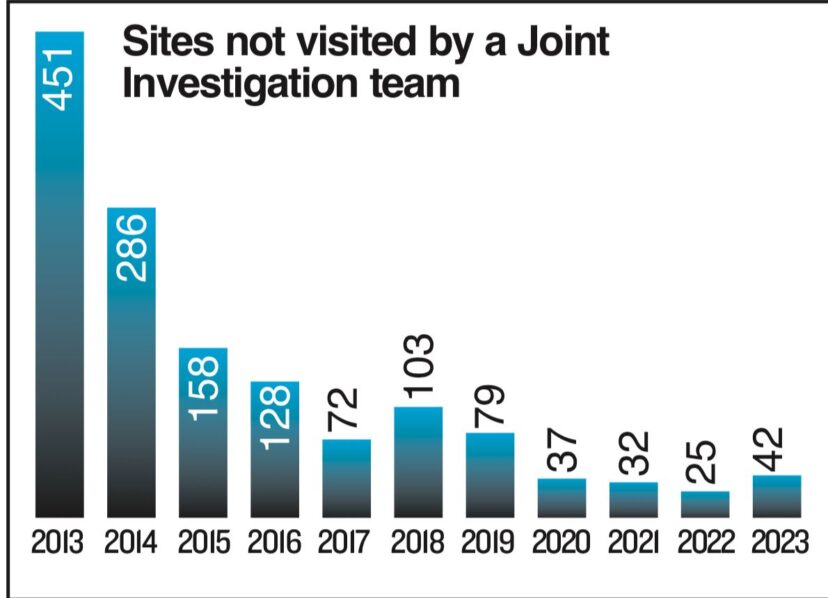
The spill was registered by National Oil Spill Detection and Response Agency (NOSDRA) with incident number 1196733. The pollution according to the Joint Investigation Visit (JIV) form came from a loose bolt that caused the component parts of illegal connections and containment that was put in place by the operator to fail.
Witnesses said the spill that traveled through farmland into Okuluu Rivers before being carried across communities occurred due to poor material and unprofessional ways SPDC handled the repair of a section of the pipeline which had been touched by vandals.
Osaro Gamba Prosperous was the lead representative for the communities in the JIV that investigated the spill. In 2021, SPDC had contracted the repair of the pipeline “but the material they used wasn’t good, secondly the welding joint was not properly welded, thirdly there was an existing valve on the pipeline which no longer had a gasket, instead of removing the valve for a new one, Shell casted on it,” Prosperous, a welder, said.
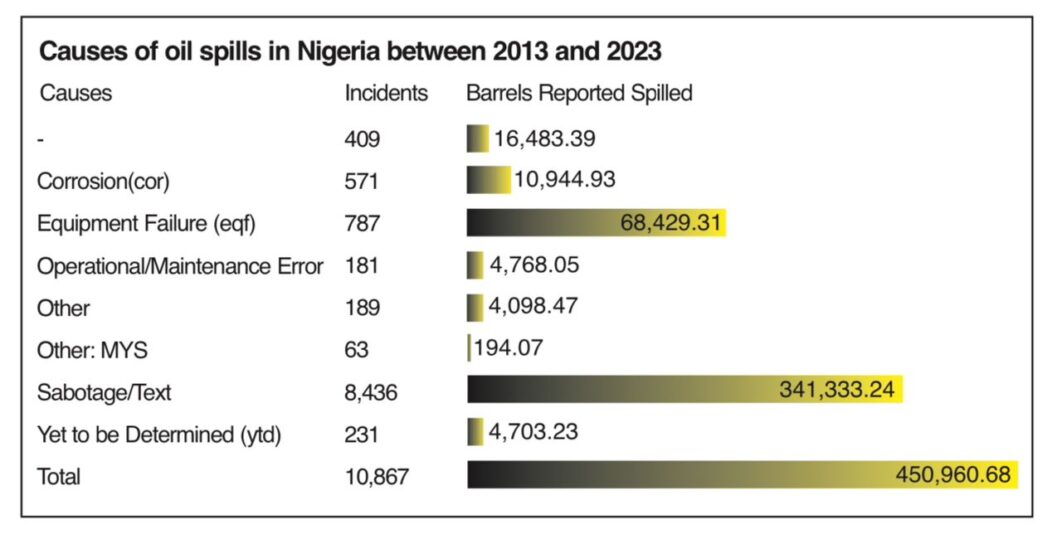
Prosperous revealed that established standards by the American Welding Society (AWS) and the British Engineering Society (BES) which were necessary under International Organisation for Standardisation (ISO) 2020 were compromised.
“They claim the materials were tested but in the overall analysis and evaluation, we demanded documents as evidence but they couldn’t provide it,” he said.
The JIV form shows that the spill polluted vegetation, fishing nets and surface water. The form went further to reveal that the crude oil spill stained water, vegetation and fishing nets across 182.11 hectares of land. This is about 36,400 Olympic pools put together.
On the JIV team were Agoh Sylvester Dominic, Ikwen Chris Agogo and Ismail Baba Ahmed who represented NOSDRA while Malaolu Abayomi, Gbodo Deinbolouadagha and Amaewhule Emmanuel represented SPDC. Olu A. Wai-Ogosu, Comrade Osaro Prosperous and Chief (Engr) Isaac Osaro from the community all signed on the JIV form.
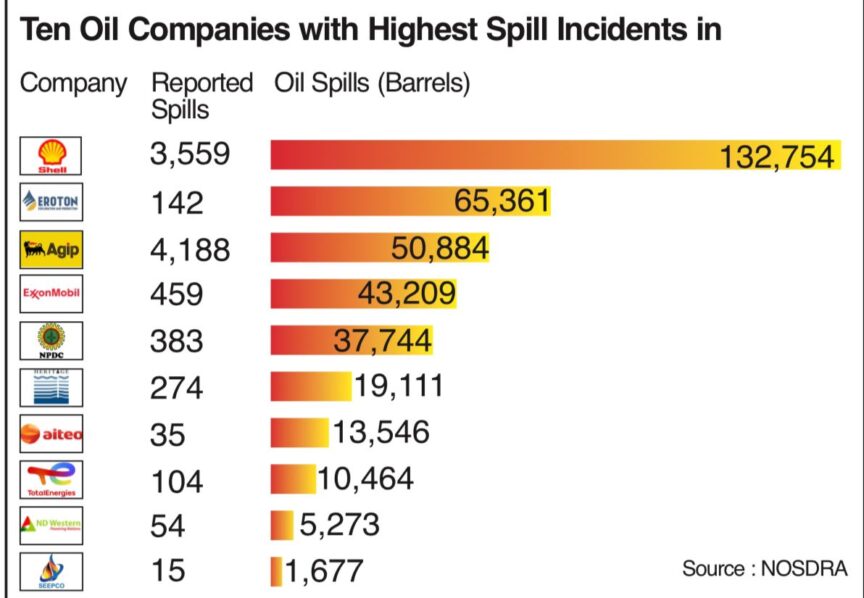
Johnson Ngei said he relies on the Okuluu Rivers for water supply and fishing, adding that the pollution has since rendered him jobless while his family land has been polluted.
Documents seen by The Guardian showed that Shell already owned up to his mistakes by opening bids for the remediation of the affected areas. The company had initially sent relief materials to the communities.
The Guardian contacted Shell but Communications, Media and NGO Relations Manager, Bamidele Odugbesan did not provide response to prove the community wrong.
As it is in Delta, Rivers… So it is in Bayelsa
Located in the Yenagoa Local Council of Bayelsa State, Ikarama Community is often referred to as the crude oil spill capital of the world. Like Diebiri Batan and Eleme, the Shell’s Okordia manifold, oil wells and pipelines owned and operated by the Nigerian Agip Oil Company (NAOC) have left households in agony, poverty and crisis.
Their once fertile farmland is now barren for farming and fishing while the biodiversity within the Bayelsa National Forest faces existential threats.
Washington Odenigbo, 53, is one of the community members whose life has been battered by crude oil spill. Once a buoyant fisherman, Ofenigbo can no longer feed his family of five. He was doing very well as a fisherman before a Shell pipeline leak destroyed his family lake; the Oya Lake, where he was earning his living.
“Previously, fishing was our major occupation. That is what I did to train my first daughter, Ebisinde, through Ozoro Polytechnic. In November 2019, a spill occurred during the flood and washed off into the lake. That was the end of everything for me. I have settled into farming but the land is no longer fertile. As a father, I can’t afford to train my other children in school anymore. They are all at home.
“Two of my sons, Perewi and Ebi, are done with secondary school, and they have written WAEC, but they are at home because there is no money. I couldn’t proceed beyond secondary school because my father could not train me. Now my children are facing a problem,” he said.
The story is the same for Benjamin Ipeme, a youth head for the community. Ipeme has visited over 20 crude oil sites including one which destroyed his fish. But he never got justice against the environmental crime.
From the number of times he had joined in investigating crude oil theft, Ipeme said the oil companies typically dictate to government agencies, especially National Oil Spill Detection and Response Agency (NOSDRA), the volume of spill and cause.
Ipeme had witnessed many spills that occurred owing to pipeline failure but when the reports get into the public, the situations painted would be entirely different.
“In 2019, I hired excavators to clear part of land for a swap for fish ponds only to find that crude oil has taken over the place. Shell had initially said remediation was done in that area for a previous spill. We reported to Environmental Rights Action (ERA) and NOSDRA. There was a joint investigation in 2021 and Shell was meant to come back but that was the last time they did anything about it.”
A more complex situation for women
In the political space, youths and women are marginalised, and this is also the case across Diebiri-Batan, Ikarama, and Eleme. In these communities, men like Odenigbo are struggling, while women like Ayi Baiko face immense challenges in feeding their households, and sourcing food, biomass, and water.
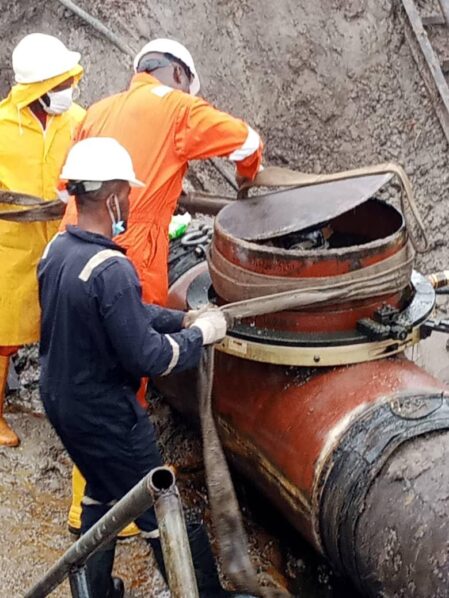
She said: “Housekeeping and caring for the children fall more heavily on the mother than on the head of the household. Every endeavour is now disappointing because we rely on farming. We cannot ask our husbands to resort to theft.”
Baiko and her group of women fought for nearly a decade to be included in a benefit scheme in Ikarama. They succeeded about two years ago and now receive approximately N2 million yearly. With a population of over 1,000 across the communities, rather than dividing the money among themselves, the women have consistently invested their funds in rental equipment, hoping this approach will be beneficial in the long term.
More worrisome for her is the dwindling level of fish and the extinction of some species in her. “There are some kinds of fish we do not see anymore because of the crude oil spill that continues to kill the fish,” struggling to find the English names, she said “one of them is elekpe.”
Former, Technical Adviser on Environment to the governor of Bayelsa State, Alagoa Morris, corroborated Baiko, stressing that aquatic communities are being wiped out due to pollution.
Morris, who relies on years of fishing experience and environmental studies, said: “In the seriously impacted environment of Bodo in Ogoni, there were no longer aquatic lives, crabs and fish were wiped out. The ones that were lucky, they migrated.”
Citing further examples, Morris said in Bodo, mangroves were completely wiped out by crude oil pollution, adding that there is however deliberate efforts ongoing through replanting of mangrove at the cleaned and remediated sites.
Worrisome cases of non-sabotage Vs sabotage oil spill
While the Nigerian government is spending a lot of money in halting crude oil theft and vandalism in the Niger Delta, which industry leaders such as the Group Chief Executive Officer of NNPC, Mele Kyari, said is being fueled by elites, cases of oil spill not related to sabotage stands at 2,431 between 2013 and 2023 according to data from the oil spill monitor hosted by NOSDRA.
Of this figure, equipment failure accounted for 787 cases while corrosion follows at 571. Operation and maintenance error stands at 181 while over 231 cases are yet to be determined.
Within this period, cases recorded as sabotage stands at 8436, accounting for over 70 per cent of the crisis to bring the cases of pollution in one decade to 10876 while the volume of oil spill per barrel stood at 450,960 translating to about 72 million liters.
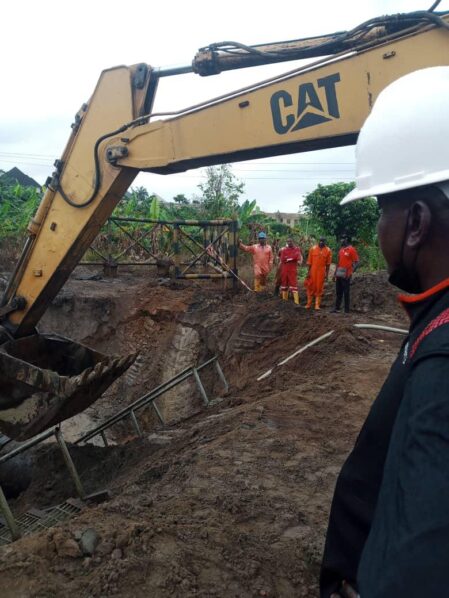
Information captured by the Oil Spill Monitor within the one decade revealed that SPDC, Eroton, Agip, ExxonMobil, NNPC’s Nigerian Petroleum Development Company (NPDC), Heritage, Aiteo, Total, ND Western and Sterling Energy and Exploration Production Limited (SEEPCO) are the top 10 polluters of the Niger Delta region. During this period, spill from Shell stood at 132,754 barrels, Eroton spilled 65,361 barrels, Agip 50,881 barrels, ExxonMobil spilled 43,209 barrels, while 37,744 barrels came from NPDC. Heritage’s record stood at 19,111 barrels, Aiteo 13,546 barrels, Total 10,464 barrels and ND Western 5,273 barrels and SEEPCO 1,677.
In 2023, there were around 1146 publicly available oil spill records but over 42 oil spill sites were not visited by a Joint Investigation team, and 563 sites had no estimated quantity of oil spilled provided by the company, raising gaps in accountability and transparency.
In 2023, a total of 19,042.334 barrels of oil (3,008,688.756 liters) were spilled, translating to approximately 95 oil tanker trucks full of oil. The oil spills were categorized by severity, with three major oil spills (over 250 barrels spilled into inland waters or over 2,500 barrels spilled on land, swamp, shoreline, and open sea).
Additionally, there were 13 medium oil spills (25-250 barrels spilled into inland waters or 250-2,500 barrels spilled on land, swamp, shoreline, and open sea). The majority of incidents were classified as minor oil spills, with 517 cases (up to 25 barrels spilled into inland waters or up to 250 barrels spilled on land, swamp, shoreline, and open sea), of which 405 were under 10 barrels in size. Furthermore, 595 oil spills could not be categorised due to insufficient data.
In 2022, there were approximately 784 publicly available oil spill records. Of these, 25 sites were not visited by a Joint Investigation team, and 307 sites had no estimated quantity of oil spilled provided by the company. Reports indicate a total of 47,610.47 barrels of oil (7,522,454.228 liters) were spilled, equivalent to around 238 oil tanker trucks.
The spills were categorized as follows: four major oil spills (over 250 barrels into inland waters or over 2,500 barrels on land, swamp, shoreline, and open sea), 11 medium oil spills (25-250 barrels into inland waters or 250-2,500 barrels on land, swamp, shoreline, and open sea), and 422 minor oil spills (up to 25 barrels into inland waters or 250 barrels on land, swamp, shoreline, and open sea), with 316 of these under 10 barrels in size. Additionally, 330 oil spills could not be categorised due to insufficient data.
In 2021, there were 546 publicly available oil spill records. At least 32 sites of the spill were not visited by a Joint Investigation team, and 192 had no estimated quantity of oil spilled.
A total of 38,982.041 barrels of oil (6,159,162.455 liters), equivalent to around 195 oil tanker trucks, were spilled. The spills included three major, six medium, and 331 minor incidents (with 237 of these under 10 barrels). Additionally, 200 spills could not be categorised due to insufficient data.
The 2020 figure shows that there were 554 oil spill records, with 37 sites not visited by a Joint Investigation team and 129 lacking spill quantity estimates.
A total of 25,135.83 barrels of oil (3,971,461.209 liters), or about 126 tanker trucks, were spilled. There were no major spills, 26 medium spills, and 377 minor spills (251 under 10 barrels).
There were also 146 spills that couldn’t be categorised due to insufficient data.
In 2019, there were 831 publicly available oil spill records. Of these, 79 sites were not visited by a Joint Investigation team, and 220 had no estimated quantity of oil spilled. Reports show that 45,553.378 barrels of oil (7,197,433.688 liters), equivalent to about 228 tanker trucks, were spilled. There were five major spills, 40 medium spills, and 533 minor spills (362 under 10 barrels). Additionally, 238 spills couldn’t be categorized due to insufficient data.
The statistics for 2018 showed 730 oil spill records, with 103 sites not visited by a Joint Investigation team and 163 lacking spill quantity estimates.
A total of 29,054.702 barrels of oil (4,590,642.984 liters), or about 145 tanker trucks, were spilled. While NOSDRA said there were no major spills, the agency had no enough data to categorize 197 spills. The 103 spills sites that were not visited may equally be a major site avoided by the regulator.
In the case of 2016, there were 686 oil spill, with 128 sites not visited by a Joint Investigation team and 174 lacking spill quantity estimates.
A total of 42,741.249 barrels of oil (6,753,117.289 liters), or about 214 tanker trucks, were spilled. The incidents included five major spills, 19 medium spills, and 447 minor spills (356 under 10 barrels). In the year under review, 213 spills couldn’t be categorised due to insufficient data.
In 2015, there were 293 oil spill records, 158 sites were not visited and 269 lack spill quantity estimates. A total of 47,714.628 barrels of oil (7,538,911.288 liters), or about 239 tanker trucks, were spilled. The incidents included four major spills, 27 medium spills, and 583 minor spills (460 under 10 barrels). Sadly about 306 spills couldn’t be categorized.
The data for 2014 showed 1,519 oil spills with 286 sites were not visited by a Joint Investigation team, and 537 lacked spill quantity estimates. A total of 78,920.461 barrels of oil (12,469,432.775 liters), or about 395 tanker trucks, were spilled. There were 8 major spills, 30 medium spills, and 904 minor spills (713 under 10 barrels) while 577 spills couldn’t be categorised.
For 2013, 1,720 oil spills were documented.
Of these, 451 sites were not visited by a Joint Investigation team, and 801 lacked spill quantity estimates. Reports indicate that 33,985.192 barrels of oil (5,369,660.309 liters), equivalent to around 170 oil tanker trucks, were spilled.
There was one major spill, 31 medium spills, and 835 minor spills (628 under 10 barrels) as 853 spills couldn’t be categorized due to insufficient data.
Divestment, Liability Of Pollution And Independent Oil Companies
Coupled with climate issues, Nigeria has, in recent years, seen $21 billion worth of assets divested even as the country’s total yearly upstream capital expenditure nosedived from $27 billion in 2014 to less than $6 billion in 2022, translating to a 74 per cent decline.
After lifting a court order that stopped it from selling it assets over a pending N800 billion litigation for pollution, Shell earlier this year joined announced exit from the onshore segment of Nigeria’s oil and gas industry while Nigerian firms scout $4.5 billion to buy out the assets of the company and those of ExxonMobil and Nigerian Agip Oil Company Limited (NAOC).
Since this announcement, the Niger Delta and some international nongovernmental organisations have mounted pressure over the decades of pollution in the region. Shell, ExxonMobil and NAOC are on the list of the five top polluters in Nigeria. Some of the Nigerian companies taking over the assets are also leading in crude oil spills.
A more serious problem is the cost of the liability of spill and capacity of the independent oil companies to handle the crisis at time that revenue from oil prices have plummeted and the NNPC, which has over 50 to 60 per cent share in most of the assets may not have the capacity to handle remediation.
Meeting cash calls in most of the Joint Venture assets have been a major issue.
On May 20, when Nigeria’s Minister of State for Petroleum (oil), Heneikan Lokpobiri hosted the United Arab Emirates Ambassador to Nigeria, Salem Al Shamsi, he admitted the pipelines in the Niger Delta have been there for over 70 years and are now weak.
Although he is from Bayelsa, where cases of pipeline leaks have been recurring, Lokpobiri was more concerned about pumping more crude through the pipeline than the environmental crimes coming from the pipelines.
Lokpobiri specifically said the pipelines, “have already outlived their lifespan,” and went further to the complexity of while more oil is not being produced instead of the looming dangers as oil companies divest.
Either the implications of the worry of Lokpobiri is that unless most of the oil assets in the Niger Delta are changed, the companies jostling for divested assets may not be able to operate optimally. Second, they will be operating with rising cases of equipment failure and corrosion as already indicated by NOSDRA’s statistics due to failing pipelines and other oil equipment.
A more worrisome situation is the fact that most of the independent oil companies are recording a great number of spill incidents compared with some IOCs. Between 2013 and 2023, most of the independent companies in Nigeria have become top polluters.
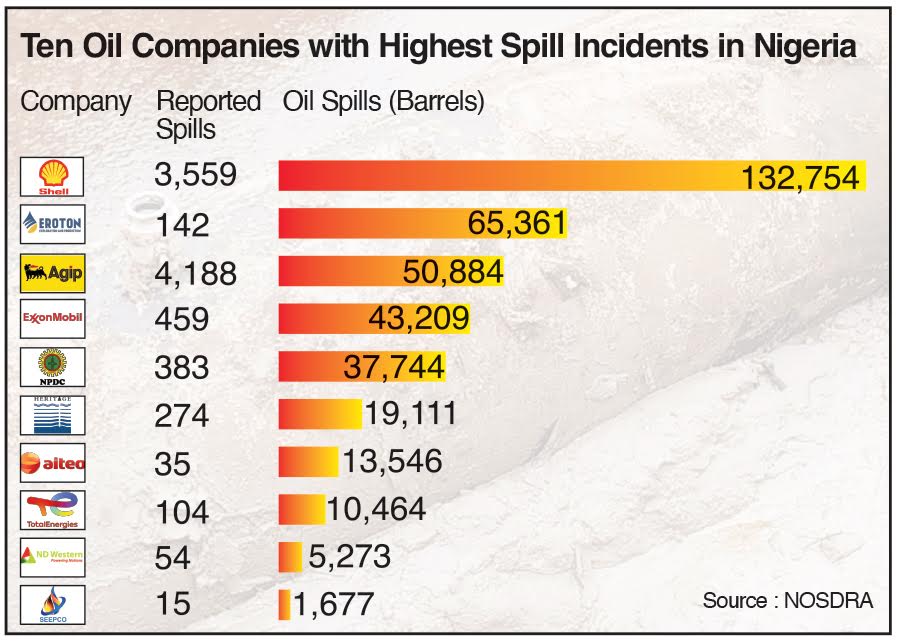 Eroton leads the ladder with 65,529 barrels in 158 cases of oil spill according to NOSDRA, NPDC had 380 incidents and spilled 49,023 barrels, Heritage which operates in Diebiri-Batan had 228 cases of spill and spilled 18,518 barrels of crude, Aiteo had 39 cases and spilled 17, 846 barrels of crude oil while ND Western spilled 5,739 in 46 cases.
Eroton leads the ladder with 65,529 barrels in 158 cases of oil spill according to NOSDRA, NPDC had 380 incidents and spilled 49,023 barrels, Heritage which operates in Diebiri-Batan had 228 cases of spill and spilled 18,518 barrels of crude, Aiteo had 39 cases and spilled 17, 846 barrels of crude oil while ND Western spilled 5,739 in 46 cases.
Former Nigerian Ambassador to the Netherlands, Oji Ngofa, whose Eleme Community was polluted by Shell is around of the future of the already impoverished oil communities in the hand of independent oil firms amidst other complex issues around abandonment, decommissioning and the surge in environmental issues, legal crises, labour conflicts.
Amnesty International’s Head of Business and Human Rights, Mark Dummett, said while oil spills have damaged the health and livelihoods of many inhabitants of the Niger Delta for decades, Shell has earned billions of dollars from this business, and it must make sure that its withdrawal does not have negative human rights and environmental consequences.
Criminalisation Of Pipeline Vandalism Vs Weak NOSDRA
While the Petroleum Industry Act (PIA) already criminalised vandalism of oil pipelines and facilities, huge gaps remained in the capacity of NOSDRA to address and monitor oil, not only because the agency lacked necessary equipment and funding, but the body faces reputation challenges and its Director General, Musa is not bothered about that.
Across the communities, residents, some who have been part of JIV to spill sites, believe that NOSDRA is at the mercy of the oil companies and sometimes not neutral. Musa told The Guardian that the oil communities should be blamed because about 80 per cent of spills are a result of sabotage.
Musa believes that some non-governmental organisations and media are being paid to write against the oil companies. While also accusing The Guardian of asking questions as if the paper was bribed to conduct investigations, Musa’s account of the Aletor spill was inaccurate to the JIV form on the companies website.
He said the spill was caused by family but the JIV form authored by his men showed other reasons, particularly a loose bolt from a previous repair.
He also said the community did not grant access to the spill site for 10 days, the JIV form showed that the first date of investigation started June 12, 2023 at 11:00am while the incident happened on 11th June 2023. The investigation continued on June 13, 14, 17, 23, 26, 27 and July 13 and 15.
“I am talking to you as Director General of NOSDRA and I have been in this business for over two decades. It took the community 10 good days before they allowed SPDC access to the sites,” the 67 years old man said.
While Musa said 68 per cent of spill comes from vandalism, his agency did not conduct JIV for 1,413 incidents of spill in the last 10 years according to the Oil Spill Monitor. As of 2013 as much as 853 spills incidents could not be categorised.
Executive Director of the Environmental Rights Action/Friends of the Earth Nigeria, Chima Williams said NOSDRA’s data is only conservative and does not show the true situation of the depth of the spill.
Williams said the Nigerian government must immediately put an environmental remediation fund in place to deal with rising spills, adding that NOSDRA is at the mercy of the oil companies due to financial constraints.
“As it is right now, while we blame NOSDRA, the government needs to provide capacity that will enable them to work independently. If we have the environmental remediation fund, NOSDRA will be able to work independently,” he said.
According to him, most of the independent oil companies in Nigeria cannot stop most of the spills, which he said are traveling faster into regions that do not even have oil fields.
Insisting that the amount of crude oil extracted is unknown, Executive Director, the Health of Mother Earth Foundation, Nnimmo Bassey,said it is equally impossible to say exactly how much oil is spilled. Bassey said some oil spills go on for over 38 days without any effort to tame the spill.
According to him, the estimate by NOSDRA is at best a note indicating the never-ending alarming trend, adding that unfortunately, the PIA falls short of making suitable provisions for tackling oil spills.
This report was published with funding support from the Centre for Journalism Innovation and Development




